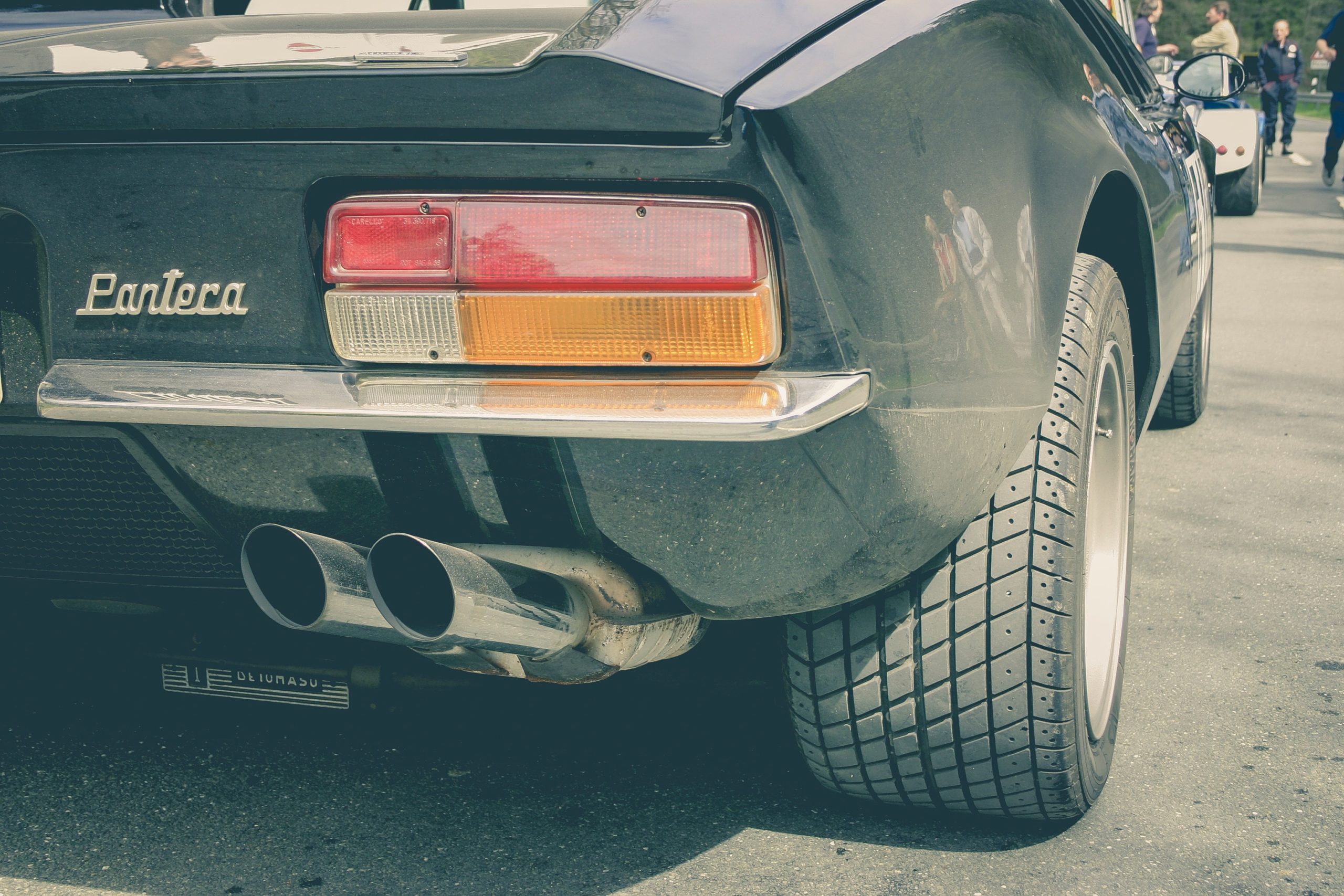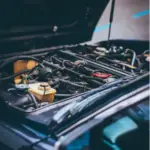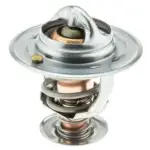Why do cars backfire? How do you fix it? Backfiring is caused by unburnt fuel igniting in the exhaust system. The majority of fuel is ignited in the cylinders, however sometimes unburnt fuel leaves the cylinders during the exhaust stroke of the engine and makes its way to the exhaust. Fuel being in the exhaust won’t cause the backfire, that fuel will have to be ignited in the exhaust in order for the engine to backfire. While the reason why cars backfire is simple, it can be a symptom of serious problems with the engine.
Engine Backfire can be caused by Rich Fuel Mixture
The number one cause of a vehicle backfiring is that the engine is running to rich. The excess fuel that is sent to the engine is being burnt in the exhaust. Your engine needs a specific air to fuel ratio to properly combust its fuel. If you have to much fuel per air molecules, your engine is running rich. Likewise if there is too much air for the fuel this causes the engine to run lean. Neither is good for the engine in the long run. This excess fuel is allowing unburnt fuel to escape during the exhaust where it is ignited creating a loud popping sound.
Cracked Distributor Caps Can Cause Cars To Backfire
Some vehicles utilize a coil on plug design for their spark plugs. If your vehicle has coil on plug you can ignore this section. Generally a quick google search is all it takes to determine if your vehicle’s engine has coil on plug or distributor caps.
The distributor cap sends electrical pulses to the spark plug, allowing the spark plugs to ignite the fuel in the cylinder. A cracked distributor cap will allow moisture to get in and cause the electrical pulses to go to the wrong spark plug which will cause the engine to backfire. If your vehicle has distributor caps, you should consider inspecting them if your vehicle backfires. The distributor cap is generally located near the center of the engine. It will have a plastic case with wires sticking out of it. These wires will connect to the spark plugs. Inspect the distributor cap for any leaks or possible areas where moisture or contamination could enter
How To Tell If Your Engine Is Running Rich
Generally an internal combustion engine will need 14.7 parts air to 1 part fuel. When your engine is cold, the ECU will put more fuel into your cylinders than normal causing the engine to run slightly rich. This is done so that the vehicle will reach an appropriate operating temperature in a reasonable amount of time. If your engine is backfiring under hard acceleration when it is still cold, consider letting the engine warm up longer before accelerating. However if the engine is warm and still backfiring check to see if it has any of the following symptoms.
Indicators of a Rich Fuel Mixture
- The Check Engine Light is on If the check engine light is on, try to get the code read immediately. Many autoparts stores will read the code for free if you don’t have a code reader. P0172 is a common code for excessive fuel in the exhaust system (A.K.A. The engine is running rich).
- The Exhaust Fumes Smell Like Fuel or Rotten Eggs Exhaust fumes that smell like fuel or rotten eggs, can be attributed to the fuel not being burnt properly in the engine. The catalytic converter will work to scrub the smell and fumes out of the exhaust, but if the engine is running too rich, the cat might not be able to completely remove the smell. This is another strong indicator that the engine is running rich.
- Decreased MPG If your fuel efficiency has dropped significantly and you’ve experienced your car backfiring, then something is wrong. There are many things that can affect fuel efficiency and a rich fuel mixture is one of them. A faulty PCV valve can also decrease fuel efficiency. However, remember that there are many other factors that affect efficiency, so this is not the best indicator in order to determine if the engine is running rich.
- Black Soot on Spark Plugs One easy way to tell if the engine is running rich is to remove a spark plug and inspect it. If you find lots of black soot (A.K.A. carbon deposits), this is a clear indicator that the engine is running rich. If you have this symptom, you will most likely notice a change in your engine’s performance.
How to stop your car from backfiring and running rich
Now that you’ve identified the problem, how can you fix it? Below are some things to check.
- Dirty Mass Air Flow (MAF) Sensor Sometimes the MAF sensor located after the air filter, can get dirty. The MAF sensor helps the engine determine the air-to-fuel ratio. If the sensor gets dirty, it might not be working properly and giving the wrong air-to-fuel ratio to the engine.
- Faulty Oxygen Sensor If the oxygen sensors go bad, this can also cause a rich fuel mixture. O2 sensors are located throughout the engine, specifically in the exhaust system. The O2 sensors in the exhaust system provide feedback on how much air is in the exhaust, if there is not enough air in the exhaust it can send this info back to the ECU which will start putting more air into the engine. However, if the O2 sensor isn’t working properly this feedback could be missing allowing the engine to run rich.
- Faulty ECU Its possible that all of the sensors could be functioning correctly, but the ECU is faulty. This could cause the ECU to set the wrong fuel mixture even though its receiving the correct data.
- Dirty Air Filter Sometimes the problem can be as simple as a dirty air filter. Many people forget to change air filter and run their vehicles with filters that have long since stopped working. This dirty air filter can cause backfiring along with other issues.
Any of these four issues can cause a rich fuel mixture or cause your cars to backfire. A backfiring engine should not be ignored as a backfiring engine is not a reliable engine.
Sources
https://www.midas.com.au/what-causes-a-backfire-in-your-exhaust/




